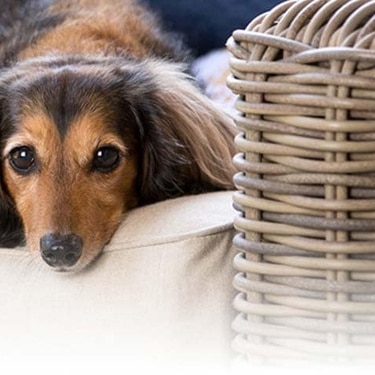
-
Find the right food for your petTake this quiz to see which food may be the best for your furry friend.Find the right food for your petTake this quiz to see which food may be the best for your furry friend.Health CategoryFeatured products
 Adult Perfect Weight & Joint Support Chicken & Brown Rice Recipe Dog Food
Adult Perfect Weight & Joint Support Chicken & Brown Rice Recipe Dog FoodThis weight management and mobility support dog food was created with Hill’s unique understanding of the biology of overweight dogs.
Shop Now Puppy Sensitive Stomach & Skin Salmon & Vegetable Stew
Puppy Sensitive Stomach & Skin Salmon & Vegetable StewGentle on stomachs while nourishing skin & supporting development in growing puppies
Shop Now Adult 6+ Large Breed Chicken Meal, Barley & Rice Recipe Dog Food
Adult 6+ Large Breed Chicken Meal, Barley & Rice Recipe Dog FoodSupports energy level, joint health, and beautiful coat in large breed mature dogs
Shop NowFeatured products -
DogCat
- Cat Tips & Articles
-
Health Category
- Weight
- Skin & Food Sensitivities
- Urinary
- Digestive
- Kidney
- Dental
- Serious Illness
-
Life Stage
- Kitten Nutrition
- Adult Nutrition
Featured articles The Right Diet For Your Pet
The Right Diet For Your PetLearn what to look for in healthy pet food & nutrition, including ingredients, quality of the manufacturer, your pet's age, and any special needs they have.
Read More Pet Food Storage Tips
Pet Food Storage TipsWhere you store your cat and dog food can make a big difference in the quality and freshness once it is opened. Here are some common questions and recommendations for optimal storage for all of Hill’s dry and canned cat and dog food.
Read More Water
WaterWater is the most important nutrient of all and essential for life. Animals can lose almost all their fat and half their protein and still survive, but if they lose 15% of their water, it will mean death.
Read More -


Weight Management in Dogs
Did you know that obesity affects more than 50 percent of America's pet population? If your pooch is overweight, she can develop all kinds of health problems, such as painful arthritis, heart disease, breathing difficulty, diabetes and even bladder cancer. For your dog, the excess weight and the resulting health problems can mean less play time and depression.
How can you tell if your dog is overweight? First, your veterinarian will weigh your dog at her regular check-ups. Between check-ups, place your hands on her side - are her ribs hard to feel or even impossible to feel? If so, she is likely overweight.
Here are some easily identifiable causes of weight gain in dogs:
Overfeeding - Dogs with unlimited access to food understandably eat more than they need
Overeating - Many commercial foods are loaded with salt and fat. This improves taste, which means your dog will want to gorge
Feeding habits - Feeding table scraps and "people food" can lead to obesity


Tasty Tips
Lack of exercise - Too much food and too little exercise produces a typical result: Obesity
Age - Older, less active dogs are prone to weight gain
Gender - Female dogs are more likely to become overweight
Neutering - Spayed or neutered dogs are twice as likely to become obese due to a more sedentary lifestyle. (There are many important health reasons to have your pet spayed or neutered - just be careful to monitor your dog's weight.)
Food plays a very important role in treating an overweight dog. Along with exercise, a low-fat and low-calorie food is essential in helping your dog lose weight and stay fit. Fiber is also a key ingredient since it helps your dog eat less while keeping her full. Once your dog has been overweight, she may be prone to weight gain and should have an ongoing weight-management plan based on good nutrition, exercise and regular check-ups and weigh-ins. For an accurate diagnosis and treatment options, always consult your veterinarian.
Related products

Gentle on stomachs while nourishing skin & supporting development in growing puppies

Advanced nutrition shown to support joint health and improve mobility

Supports energy level, joint health, and beautiful coat in large breed mature dogs

This weight management and mobility support dog food was created with Hill’s unique understanding of the biology of overweight dogs.
Related articles

Learn what you can feed your pregnant or nursing dog to keep her and her new pups healthy.

Though it may seem like your four-legged friend loves nothing more than to nap on the couch, dogs need regular exercise to stay healthy just like people do.

Selecting the right food for your puppy is a key to quality nutrition and a long, healthy life., Learn more about how to select the right puppy food.

A dog with a sensitive stomach has special needs. Learn more about sensitive stomach symptoms in your dog, what you can do to help sooth your pet’s insides and get recommendations on sensitive stomach dog food.

Put your dog on a diet without them knowing
Our low calorie formula helps you control your dog's weight. It's packed with high-quality protein for building lean muscles, and made with purposeful ingredients for a flavorful, nutritious meal. Clinically proven antioxidants, Vitamin C+E, help promote a healthy immune system.
Put your dog on a diet without them knowing
Our low calorie formula helps you control your dog's weight. It's packed with high-quality protein for building lean muscles, and made with purposeful ingredients for a flavorful, nutritious meal. Clinically proven antioxidants, Vitamin C+E, help promote a healthy immune system.





